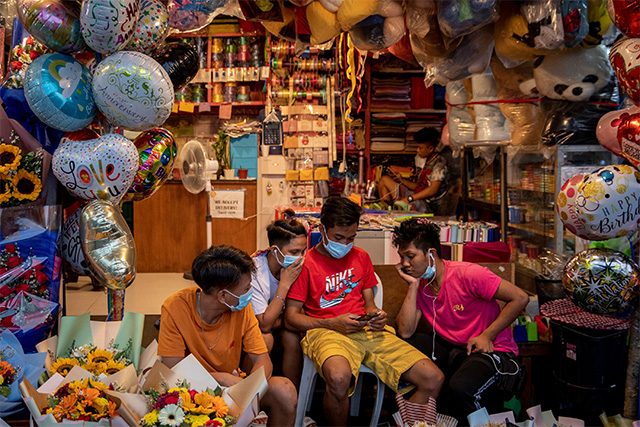
MANILA — The Philippines on Friday loosened coronavirus restrictions to allow children out of their homes so they can return to parks, playgrounds, and hiking trails in the capital region and some other provinces after a slowdown in infections.
Children aged five and above, who were previously confined indoors, will also be permitted to go to outdoor tourist sites and dining establishments, and play non-contact sports outside, Presidential spokesperson Harry Roque said.
The pandemic has battered the Philippine economy, triggering millions of jobs losses, prompting policy makers to call for the easing of lockdown measures to help boost domestic spending.
“Children must be supervised by adults and observe minimum public health standards, such as wearing of face masks and social distancing,” Roque said in a statement.
COVID-19 infection rates have fallen from a peak in March and April as more people become vaccinated, but officials have said some restrictions must be retained in and outside the capital region given the threat posed by new variants.
Schools in the country remain shut, social gatherings are still restricted and public transport services are operating below capacity.
As of July 8, confirmed COVID-19 cases in the Philippines reached 1.46 million, while the number of fatalities totalled more than 25,700.
But cases have dropped to roughly 30,000 a week since May, roughly half of the nearly 60,000 in some weeks in March and April, health ministry data showed.
Unlike other Southeast Asian neighbors, the Philippine has not yet detected community transmission of the highly transmissible Delta variant.
About 8.6% of its 110 million people have so far received at least one vaccine dose, government data showed, and 2.9 percent have been fully immunized.
Authorities have given the greenlight for children aged 12 and above to be vaccinated, but not until other priority groups have been inoculated. —Reporting by Karen Lema Editing by Ed Davies









